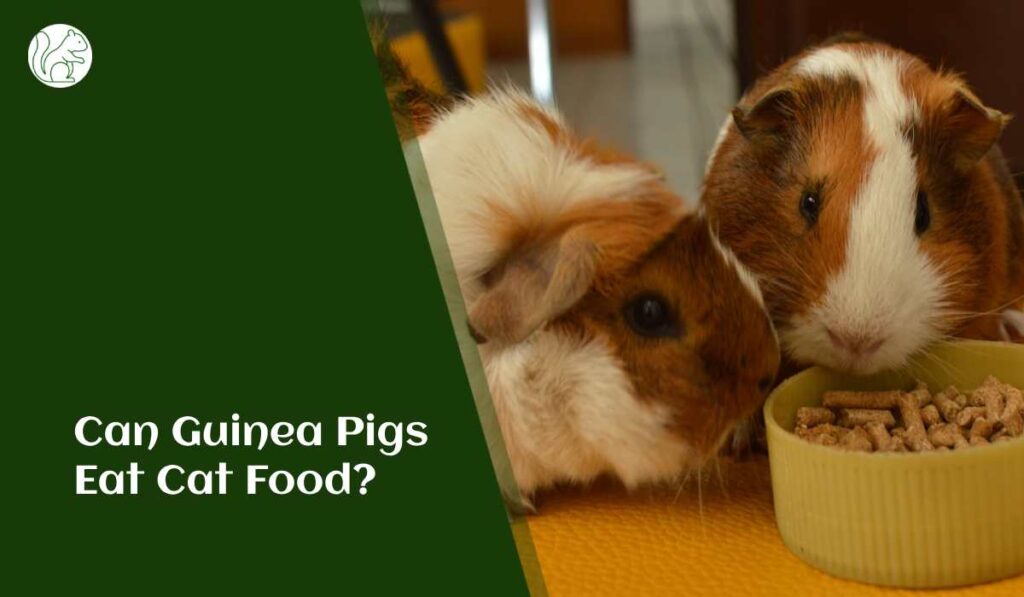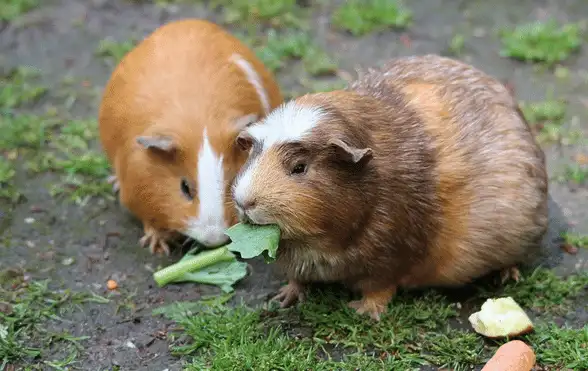Guinea pigs, also known as cavies, are popular pets known for their adorable appearance and gentle nature. As responsible pet owners, it’s crucial to provide them with a balanced and nutritious diet to ensure their well-being. While guinea pigs have specific dietary requirements, it’s natural to wonder if they can eat cat food. In this article, we will explore whether or not cat food is suitable for guinea pigs and provide you with valuable insights to keep your furry friends healthy and happy.

Understanding Guinea Pig Dietary Needs
Before discussing cat food, let’s first understand the dietary needs of guinea pigs. These small rodents are herbivores, which means their diet should primarily consist of fresh hay, vegetables, fruits, and high-quality guinea pig pellets. They have specific requirements for essential nutrients such as vitamin C, fiber, and calcium.
Guinea pigs cannot synthesize vitamin C on their own, making it crucial to provide them with a sufficient dietary source. Insufficient vitamin C intake can lead to a serious condition called scurvy in guinea pigs. Additionally, guinea pigs have a sensitive digestive system, and sudden changes in their diet can cause gastrointestinal issues.
The Risks of Feeding Cat Food to Guinea Pigs
While cat food is formulated to meet the dietary needs of felines, it is not suitable for guinea pigs. Cat food is primarily designed for obligate carnivores, such as cats, and contains a significantly higher protein content than what guinea pigs require. Feeding cat food to guinea pigs can lead to various health issues and nutritional imbalances.
One of the major concerns with cat food is its high protein content, which can strain the guinea pig’s kidneys. Excess protein intake can cause renal problems and may lead to urinary tract issues in these small animals. Furthermore, cat food lacks the necessary fiber content that guinea pigs need for healthy digestion and to maintain proper dental health.
Meeting Guinea Pig’s Nutritional Requirements
To ensure the optimal health of your guinea pig, it is important to focus on meeting their specific nutritional requirements. Here are some key elements of a well-balanced guinea pig diet:
1. Hay
Fresh, high-quality hay should form the basis of your guinea pig’s diet. Timothy hay or grass hay provides the necessary fiber for healthy digestion and helps wear down their continuously growing teeth.
2. Vegetables
Introduce a variety of fresh, leafy greens and vegetables into your guinea pig’s diet. Examples include romaine lettuce, bell peppers, cucumber, and carrots. However, remember to introduce new vegetables gradually to prevent digestive upset.

3. Fruits
Fruits can be offered as occasional treats due to their high sugar content. Apples, strawberries, and blueberries are suitable choices. Remember to provide them in small portions to avoid overconsumption.
4. Pellets
Choose high-quality guinea pig pellets that are specifically formulated to meet their nutritional needs. Look for pellets that contain a balanced amount of vitamin C, fiber, and other essential nutrients.
5. Fresh Water
Ensure a fresh and clean water supply at all times. Guinea pigs need access to water to stay hydrated and maintain their overall health.
Conclusion
In conclusion, while guinea pigs have diverse dietary needs, cat food should not be included in their diet. Guinea pigs are herbivores and require a diet rich in hay, vegetables, fruits, and guinea pig pellets to thrive. Cat food is formulated for the unique dietary requirements of cats and does not provide the necessary nutrients that guinea pigs need. Feeding cat food to guinea pigs can lead to health problems and nutritional deficiencies. By focusing on a well-balanced and guinea pig-specific diet, you can ensure the optimal health and well-being of your beloved pets.
Remember to consult with a veterinarian who specializes in small animals for personalized advice on your guinea pig’s diet. By providing the right nutrition, you can contribute to your guinea pig’s long and happy life.
